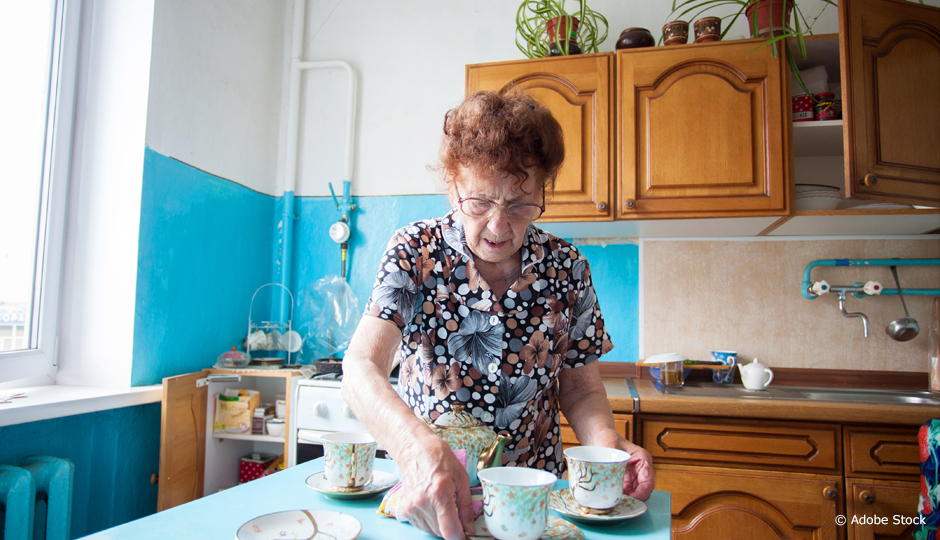In Québec, 88% of seniors aged 75 and older live at home. That’s a good thing, since home care costs less than care in a seniors’ residence. Even so, when cognitive decline brings about a loss of independence, seniors are often quickly relocated to a nursing home. This change of environment can accelerate the deterioration of their autonomy and quality of life and create high costs for the health care system. To help seniors stay in their homes as long as possible, Nathalie Bier, researcher at the research centre of the Institut de gériatrie de Montréal and CIUSSS Centre-Sud-de-l’Île-de-Montréal, and her team are exploring the technological means available to ensure seniors’ safety, support their daily routines and clearly understand their needs.
In Québec, 88% of seniors aged 75 and older live at home.
She relies on home automation motion and contact sensors that she and her colleagues in the DOMUS laboratory at Université de Sherbrooke and at LIARA at Université du Québec à Chicoutimi have combined with artificial intelligence algorithms. Sensors installed in bedrooms offer details on sleep patterns, and those in bathrooms reveal personal hygiene routines.
Refrigerators and kitchen ranges can also provide information. For instance, when the door is left open or a heating element is left on accidentally, a connected tablet can send out a voice and visual message to warn the home’s residents. If the sensor does not detect any movement after the alert is sent out, the smart system could then shut down the appliance.
These strategies are currently being tested in centres that provide senior care, as well as in three smart apartments in a laboratory setting. In addition to looking at the costs and impacts on residents, Nathalie Bier is gathering a range of data that will help community and health care agencies better meet the needs of seniors who are experiencing cognitive loss and choose to remain in the comfort of their own homes.




